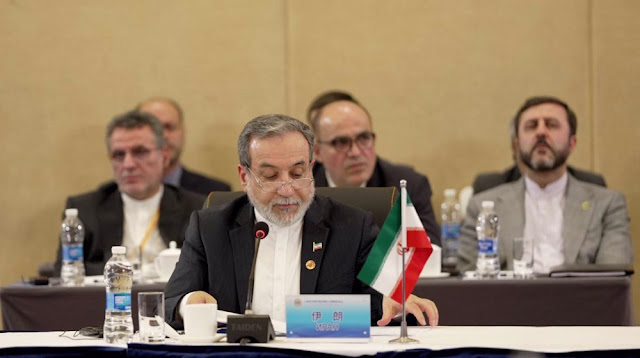Iran’s Foreign Minister Abbas Araghchi has called on the Shanghai Cooperation Organization to promptly review the situation regarding the recent Israeli aggression against Iran, urging the body to adopt measures offering Tehran essential political backing and related support.
Speaking at the meeting of the Council of Foreign Ministers of the SCO held in China on Tuesday, Araghchi submitted several proposals by Iran aimed at enhancing the effectiveness and standing of the organization.
He proposed “establishing a permanent mechanism to monitor, document, and coordinate responses to military aggression, acts of sabotage, state-sponsored terrorism, and violations of member states’ national sovereignty.”
He also called for creating a “Center for Sanctions Studies and Countermeasures” tasked with developing operational strategies to combat unlawful unilateral sanctions, safeguard supply chains, protect banking systems, and secure trade exchanges among member states.
The top Iranian diplomat also requested forming a “Shanghai Regional Security Forum” with the participation of defense and intelligence institutions from member states to address shared threats such as terrorism, extremism, organized crime, and cyber threats.
Araghchi called on the SCO to strengthen media and cultural integration among member states as a tool to counter perception warfare and one-sided narratives promoted by the media of hegemonic powers.
Key bilateral meetings
On the sidelines of the SCO meeting, Araghchi had a meeting with Chinese President Xi Jinping Tuesday morning, accompanied by other foreign ministers from the organization.
Before the group gathering, Araghchi and Xi also engaged in a short bilateral discussion.
The Iranian minister also held talks with his Russian counterpart Sergei Lavrov on regional and international issues.
The Russian side once again reiterated the importance of resolving the issues surrounding Iran’s nuclear program solely through political and diplomatic means, and in accordance with international law.
Araghchi also held talks with his Pakistani, Uzbek and Kyrgyz counterparts, Muhammad Ishaq Dar, Bakhtiyor Saidov and Jeenbek Kulubayev, respectively.
In a post on his X account released on Tuesday, the Pakistani foreign minister hailed the meeting and said, “Good to catch up with Foreign Ministers of Iran, Uzbekistan, and Belarus on the sidelines of the SCO CFM in Beijing, just before our joint call on Chinese President Xi at the Great Hall of the People in Beijing.”
He added that it is always good “to exchange views for strengthening regional understanding and cooperation in such a challenging time.”
Araghchi also held a phone conversation with Malaysia’s Foreign Minister Mohamad Hasan.
During the call, the top Iranian diplomat referred to his recent meeting with Malaysian Prime Minister Anwar Ibrahim on the sidelines of the BRICS Summit in Rio de Janeiro.
He underscored Iran’s commitment to follow up on mutual agreements regarding the development and expansion of bilateral relations.
The two sides expressed their desire to continue talks and consultations on bilateral relations and key developments in the West Asia region.
The top Malaysian diplomat highlighted his country’s interest in strengthening Tehran-Kuala Lumpur relations.
He also invited his Iranian counterpart to visit Malaysia at an appropriate time, which Araghchi welcomed.
The 25th Meeting of the Council of Foreign Ministers of the Shanghai Cooperation Organization began on Tuesday in the Chinese port city of Tianjin.
The main objective of this two-day meeting is to review the latest political, security, and economic developments in the region as well as key priorities, including enhancing security cooperation against terrorism, supporting multilateralism, boosting regional trade, and expanding the organization’s role in Eurasian geopolitical arrangements.

Comments
Post a Comment